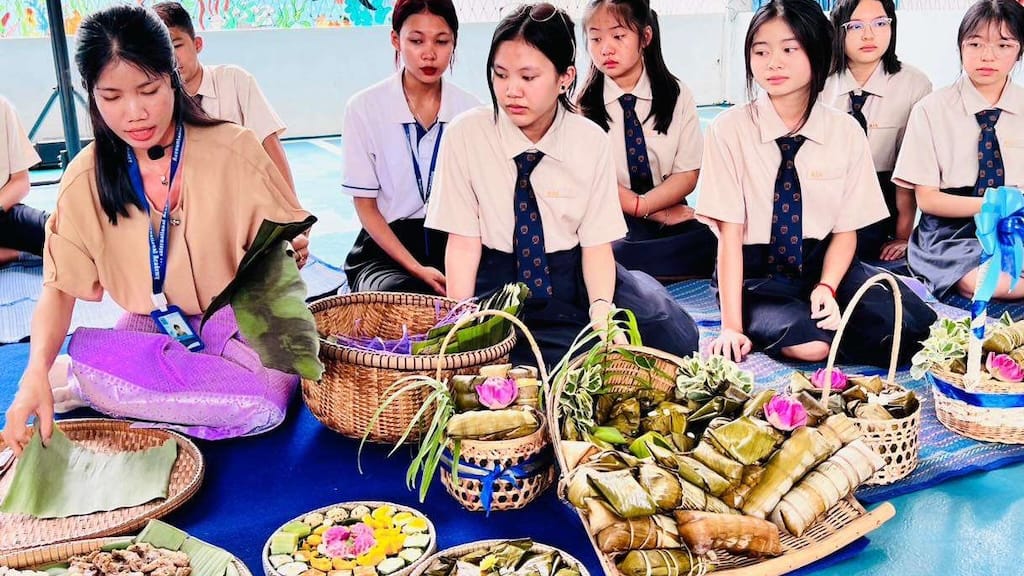
Pchum Ben in Cambodia: An Insider's Guide to the Kingdom's Holy Festival
Cambodia, a country steeped in history and multiculturalism, is home to one of its most significant religious celebrations: Pchum Ben. Known as the "Festival of the Ancestors," this 15-day event holds immense religious and cultural significance for the Cambodian people.
It is a time when families come together to honor their ancestors, offering food, blessings, and merit to ensure their loved ones find peace in the afterlife. For travelers, Pchum Ben offers a unique insight into the soul of Cambodian culture and tradition, making it an unmissable experience for those seeking to understand the heart of this Southeast Asian nation.
The Historical Origins of Pchum Ben
Pchum Ben traces its roots to pre-Angkorian Khmer traditions, deeply influenced by Theravada Buddhism, which is practiced by over 95% of Cambodians. The festival is believed to have evolved from animist practices where ancestors were revered and offerings were made to appease spirits. Over time, these traditions merged with Buddhist teachings, creating the unique blend of rituals seen today.
One of the most important aspects of Pchum Ben is its connection to the Buddhist concepts of karma and reincarnation. It is believed that some souls, burdened by past misdeeds, cannot be reincarnated and instead roam the earth as hungry ghosts. During Pchum Ben, these spirits are temporarily liberated from their suffering, and families can ease their plight by offering food and prayers.
The festival has grown in significance over the centuries, becoming a cornerstone of Cambodian culture. While no specific historical figures are credited with its origins, Pchum Ben has been shaped by generations of monks, elders, and families who have preserved its customs with unwavering dedication.
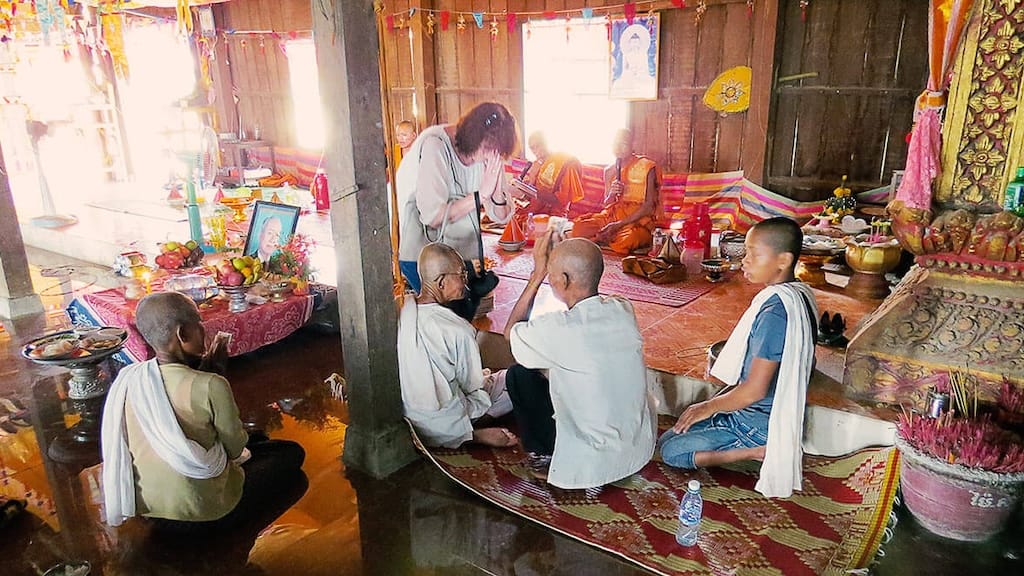
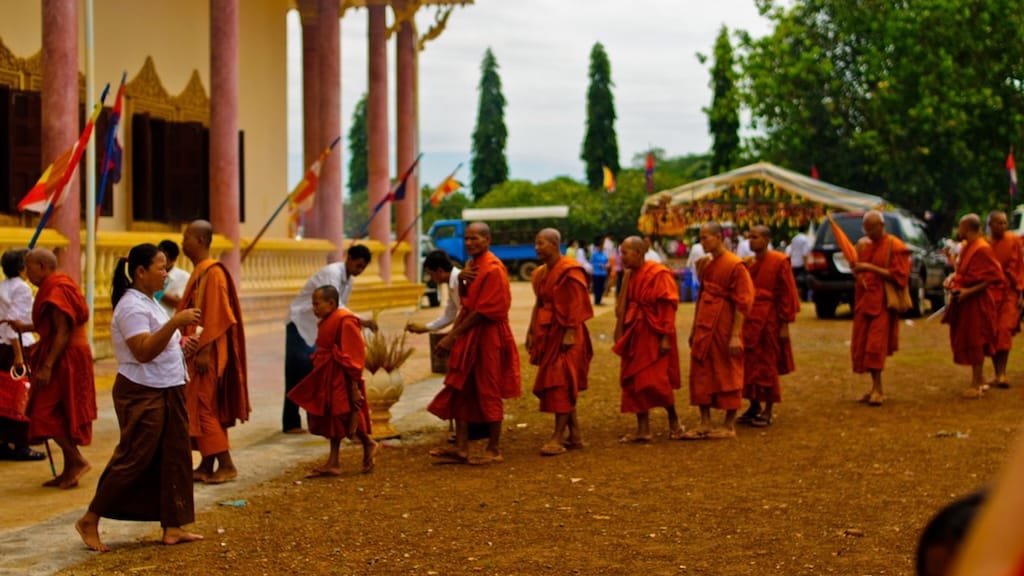
Common Activities During Pchum Ben
Pchum Ben is a time for both somber reflection and communal celebration. The festival is marked by a series of rituals and activities performed in pagodas, homes, and public spaces across Cambodia. Here are some of the most prominent traditions:
Food Preparation and Offerings to Monks: Families rise early to prepare traditional dishes like bay ben (sticky rice cakes) and other special foods. These offerings, known as dana, are carried to local pagodas and given to monks. This act is believed to bring merit to both the living and the deceased.
Ceremonies of Prayer: Pagodas resonate with prayers and chants during the festival. Monks conduct ceremonies to bless the offerings and guide the spirits of ancestors. Devotees light incense, candles, and pray for the well-being of their loved ones.
Pagoda Visits: Cambodians visit multiple pagodas during Pchum Ben to spread their offerings to as many spirits as possible. The atmosphere is one of piety and unity, as people from all walks of life come together to honor their ancestors.
Group Bonding: While deeply religious, Pchum Ben also fosters community bonding. Families and friends gather to share meals, exchange stories, and reaffirm familial ties. In rural areas, performances and games add a festive touch to the occasion.
Traditional Beliefs and Customs
Pchum Ben is rich in traditions that reflect Cambodia's religious and cultural heritage. Some of the most notable customs include:
Food Offerings: Food is central to Pchum Ben, symbolizing the connection between the living and the dead. In addition to bay ben, families prepare dishes like curries, soups, and sweets, which are offered to monks or placed on altars.
Music and Chants: Traditional Khmer music and the rhythmic chants of monks create a solemn yet uplifting atmosphere. These sounds are believed to guide the spirits and provide comfort to both the living and the dead.
Traditional Attire: Many Cambodians wear traditional clothing during the festival, such as the sampot for men and the sampot sarong for women. These elegant silk garments reflect the cultural pride of the participants.
Rites for the Dead: Families perform rituals like sprinkling water on the ground or releasing birds and fish as acts of merit. These practices are believed to help the deceased accumulate good karma and achieve rebirth.
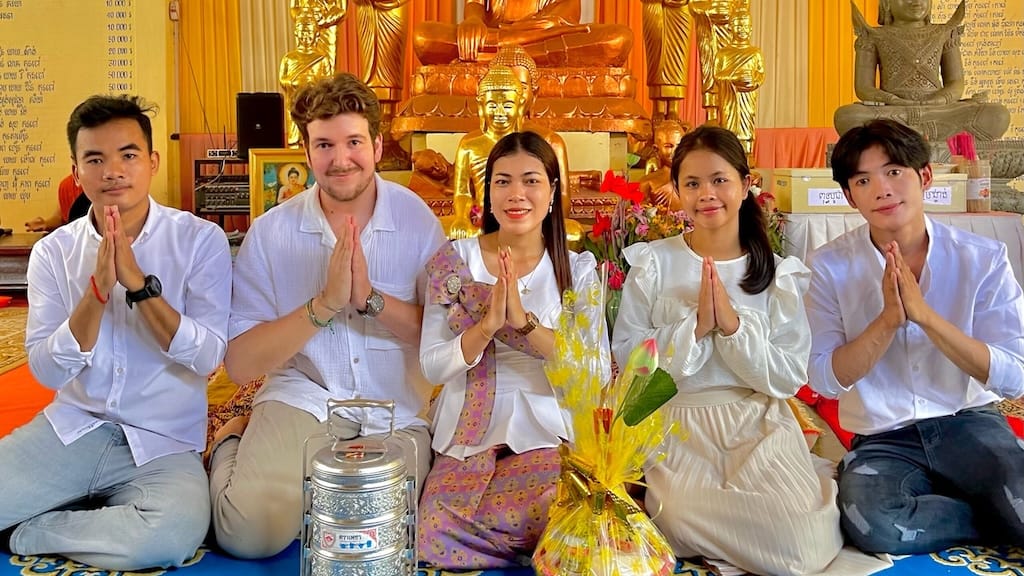
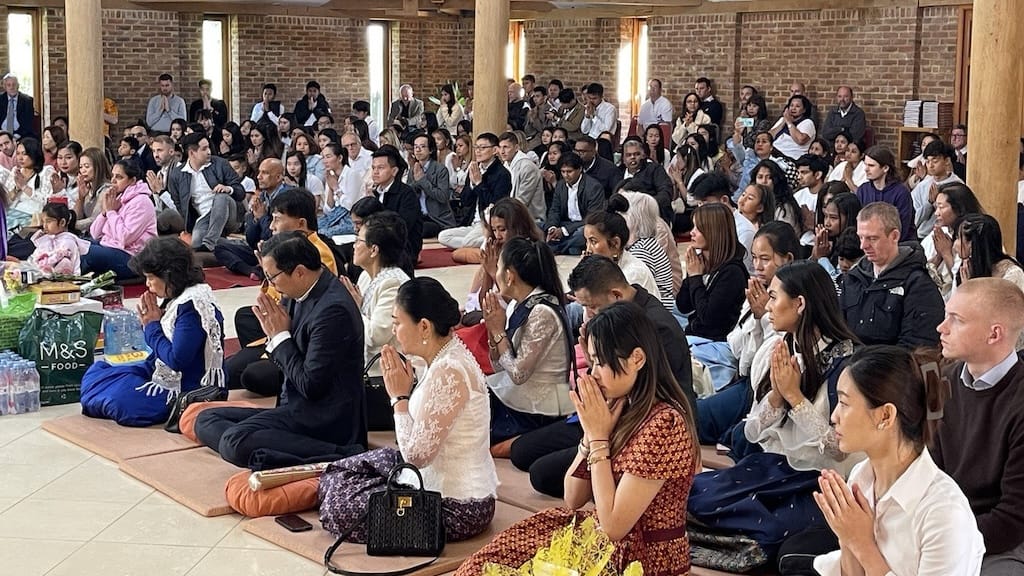
What to Expect as a Guest
For visitors, Pchum Ben offers a unique opportunity to immerse themselves in Cambodia's spiritual and cultural traditions. Here are some tips to make the most of your experience:
Timing: Pchum Ben typically occurs in September or October, based on the lunar calendar. The final three days, known as Ben Thom, are the most significant and attract the largest number of pilgrims.
Location: While Pchum Ben is celebrated nationwide, the most vibrant festivities can be found in Phnom Penh, Siem Reap, and Battambang. Visiting a local pagoda early in the morning is essential to witness the food offerings and prayers.
Etiquette: Dress modestly and behave respectfully during the festival. Remove your shoes before entering a pagoda, and avoid pointing your feet at monks or altars. If you wish to participate in ceremonies, observe the locals and follow their lead.
Accommodation: Cambodia offers a wide range of accommodations, from budget guesthouses to luxury hotels. During Pchum Ben, it’s advisable to book early, as many locals travel to their hometowns to celebrate with family.
Local Experiences: Beyond the festival, take time to explore Cambodia's rich cultural heritage. Visit the iconic Angkor Wat, savor traditional Khmer cuisine, or take a boat ride on Tonle Sap Lake. These experiences will deepen your understanding of the country and its people.
Conclusion: A Festival of Remembrance and Unity
Pchum Ben is more than a religious festival; it is a profound expression of the bond between the living and the dead, and a celebration of Cambodia's cultural heritage. For travelers, it offers a rare glimpse into the spiritual depth and warm hospitality of the Cambodian people. Whether you are drawn to the solemn ceremonies, vibrant traditions, or sense of community, Pchum Ben is an experience that will stay with you long after you leave Cambodia.
When planning your trip, consider timing your visit to coincide with this sacred festival. By participating in Pchum Ben, you’ll not only gain a deeper appreciation for Cambodian culture but also contribute to the preservation of a tradition cherished for centuries. In a fast-paced world, Pchum Ben reminds us of the importance of slowing down, reflecting on our roots, and honoring those who came before us.
- Learn more about Cambodian culture and festivals here
- Discover the history of Theravada Buddhism in Cambodia
- Plan your visit to Angkor Wat